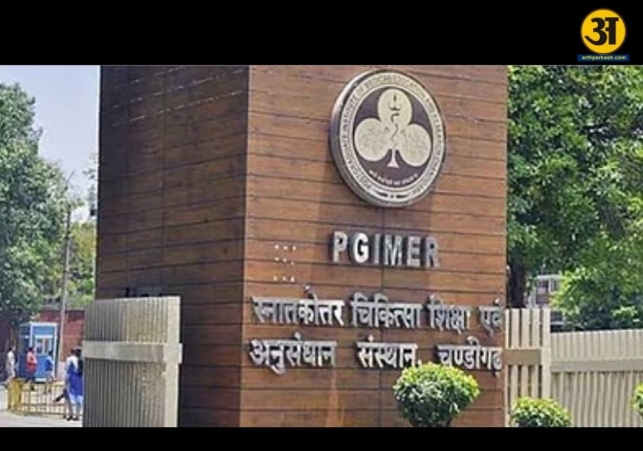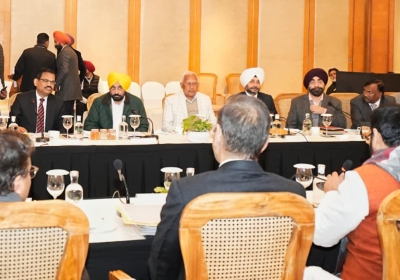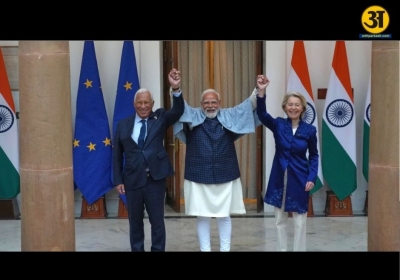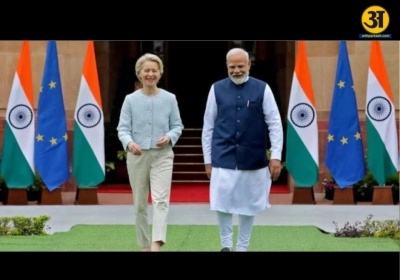
₹88 lakh patient aid misused at PGI Chandigarh, panel reveals
Panel uncovers misuse of ₹88 Lakh patient fund at PGI Chandigarh without valid prescriptions
- By Gurmehar --
- Friday, 04 Jul, 2025
A panel has found that ₹88.12 lakh meant for poor patients at PGIMER, Chandigarh, was wrongly used without doctors' prescriptions. The report says the money was diverted to buy medicines for patients who never even asked for help. These fake transactions were done through the Private Grant Cell (PGC) of the Postgraduate Institute of Medical Education and Research (PGIMER).
The money was part of a total fund misuse of ₹1.14 crore. The shocking findings were shared in a report prepared by a committee headed by Prof Arun Kumar Aggarwal. The committee looked into fund misuse cases from 2017 to 2021. The report says that prescriptions — which are mandatory to release any financial help — were missing in most cases. Despite this, funds were released to medicine vendors.
No FIR filed yet
In early 2025, PGIMER handed the case to the Central Bureau of Investigation (CBI), which is now studying the matter. But no First Information Report (FIR) has been filed yet. PGIMER’s vigilance department had first found signs of fund misuse in October 2022. However, the inquiry committee was not formed until February 2023. It finally submitted its report to PGIMER in late 2024. Only then was the case forwarded to the CBI in February 2025.
The delay in action has been criticised by many, especially Ashwani Munjal, chairman of the PGI Contractual Workers’ Union. He got a copy of the report through the Right to Information (RTI) Act on July 1, 2025. Munjal said it was unfortunate that the committee didn’t even hold its first meeting until October 5, 2023 — almost eight months after it was formed.
The inquiry found that five employees from the Private Grant Cell were directly involved in the scam. But no senior officers have been named or blamed. Out of these five, three are contractual staff — Sunil Kumar, Pardeep Singh, and Chetan Gupta. One employee, Gaganpreet, is on deputation. The only permanent staff member named, junior administrative assistant Dharam Chand, retired in 2020.
Surprisingly, five out of the six employees involved are still working at PGIMER. This includes all three contractual workers and the deputed staff member. The report also says that none of these fake transactions had patient applications or prescriptions, making it clear that the process was bypassed entirely.
Funds meant for needy patients misused
The Private Grant Cell is responsible for giving financial help to poor patients for treatment. This money comes from government schemes and must only be released after receiving proper documents — especially a doctor’s prescription. In this case, the rules were ignored.
Instead, funds were transferred directly to medicine sellers on behalf of 75 patients, even though these patients had never asked for reimbursement or help. It appears that fake bills were created using their names. This helped insiders move large amounts of money without anyone noticing for a long time.
ALSO READ: Open drains in Panchkula remain a serious hazard despite repeated complaints
ALSO READ: Chandigarh sees 5°C drop in day temperature, more rain likely on Thursday
PGIMER medical superintendent Dr. Vipin Kaushal confirmed that the case has been officially handed over to the CBI. He added that the vigilance department is also involved and has already issued certain directions. These are now being implemented by the Private Grant Cell.
Kaushal said the CBI is conducting its own investigation and has taken charge of the case. While PGIMER says it is cooperating fully, the lack of an FIR and continued employment of those named in the scam has raised serious questions about accountability and transparency.
Munjal and other whistleblowers say that further delays could damage public trust. They argue that PGIMER must act fast and take strong steps against those found guilty. They are also demanding that senior officials who failed to stop the fraud must also be questioned.
The ₹88.12 lakh scam at PGIMER highlights how weak monitoring and delayed action can lead to major misuse of public money. The funds were meant for poor patients under government schemes but were diverted by staff without basic requirements like prescriptions. The fact that the fraud continued for four years and was not taken seriously until much later shows a serious failure in the system.
Even after the scam was found, action against the staff has been slow. With the CBI now handling the case, all eyes are on whether legal action will follow — and whether PGIMER will fix the flaws in its system that allowed this to happen.





